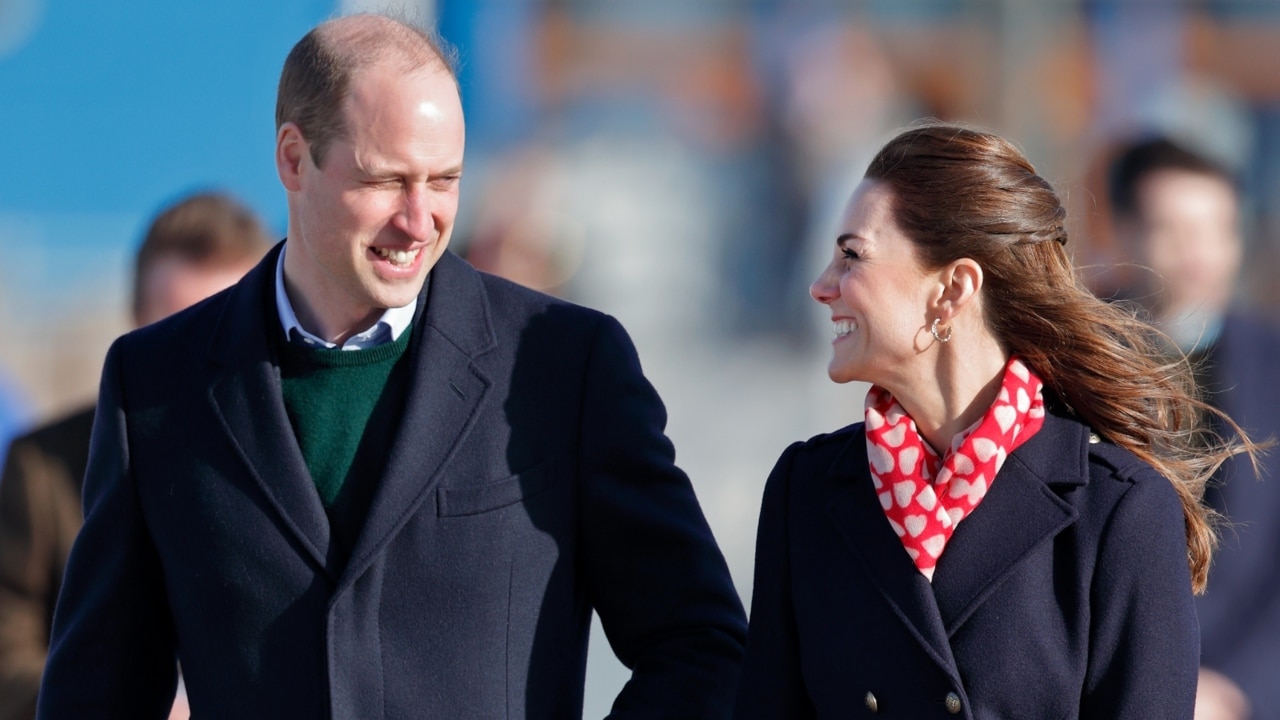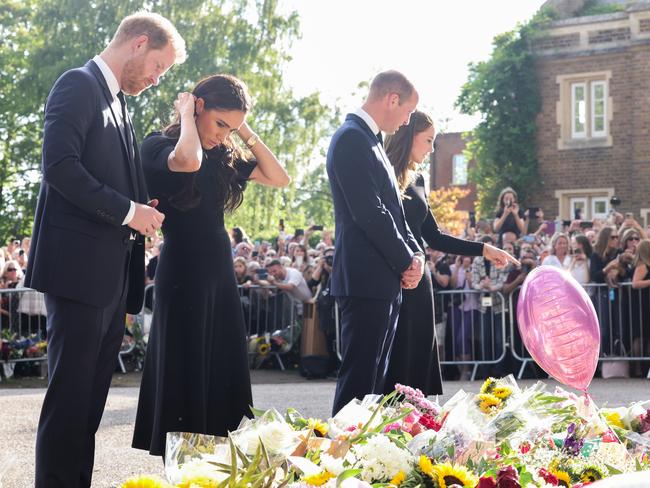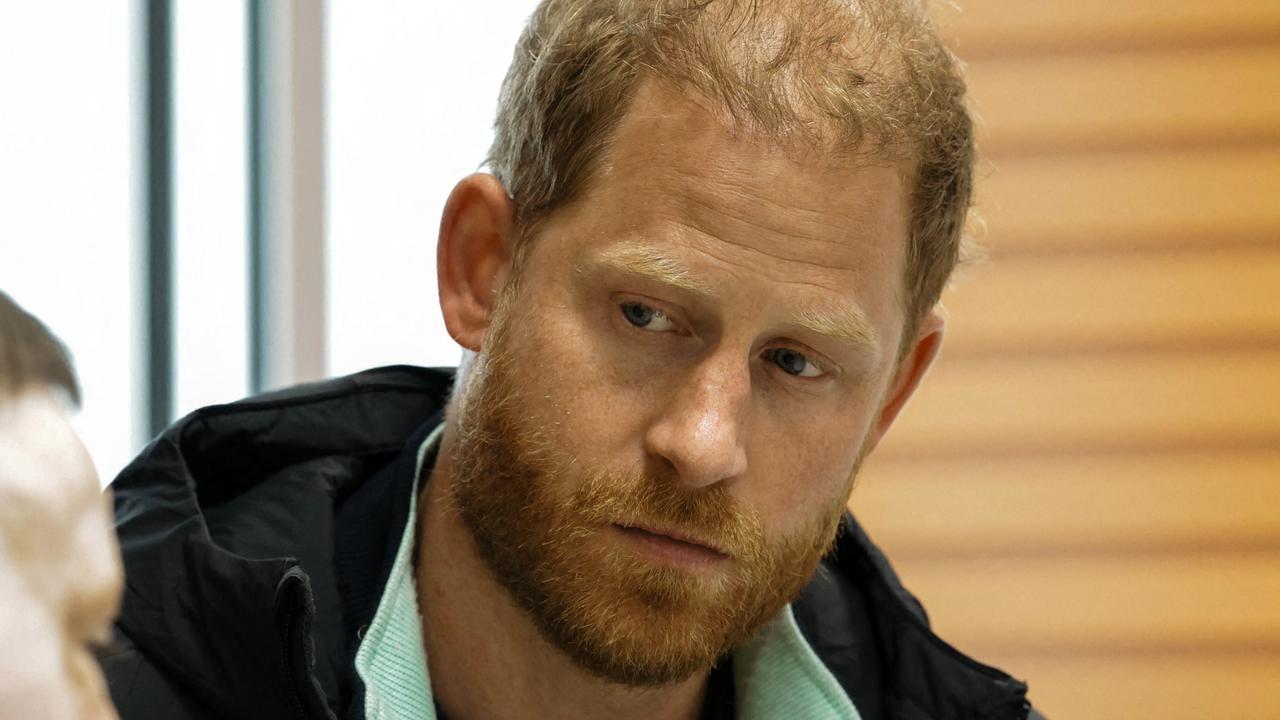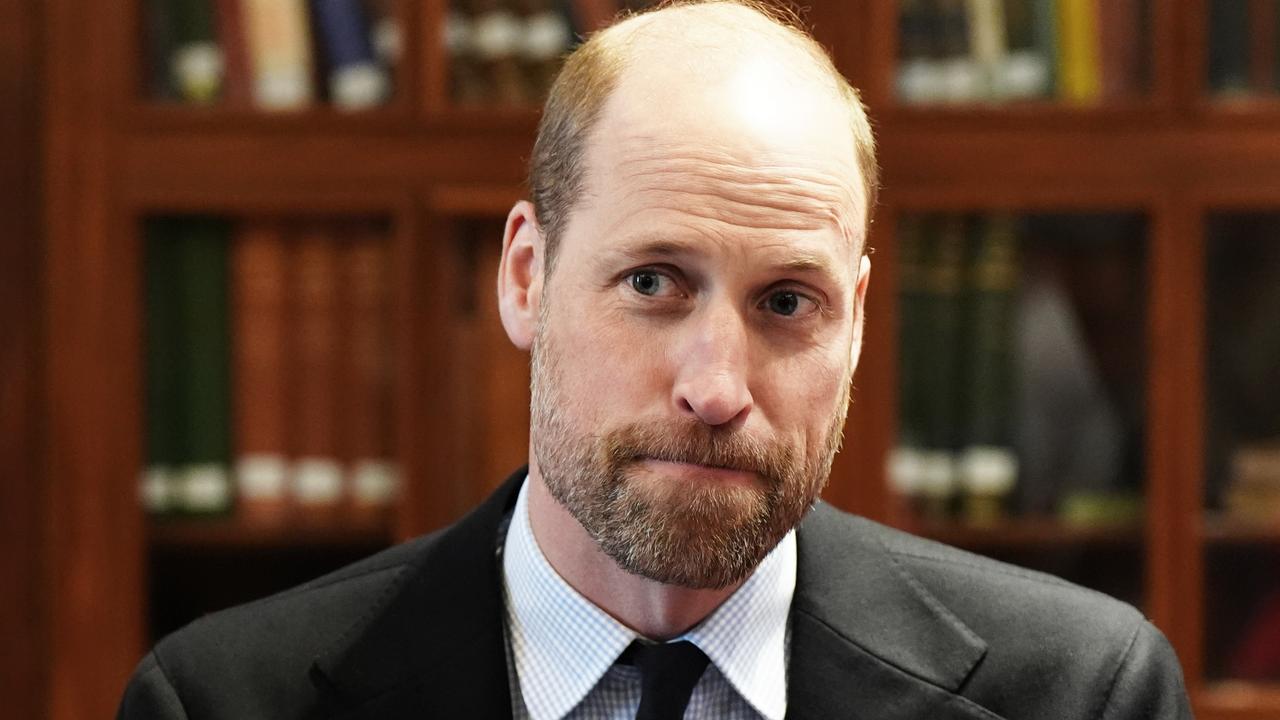Hidden meaning behind Prince William’s major snub to Harry and Meghan
In his first public comments since the Queen’s death, the new Prince of Wales delivered a glaring rebuke to the Sussexes before extending an olive branch.

Royals
Don't miss out on the headlines from Royals. Followed categories will be added to My News.
William, Prince of Wales delivered his first public comments since becoming first in line the throne of the United Kingdom.
While he extended an olive branch to Prince Harry and Meghan Markle to publicly mourn the Queen at Windsor Castle, Prince William’s first public comments since becoming the official heir were a glaring rebuke of the Duke and Duchess of Sussex.
The Prince of Wales’ 240-word statement was short but loaded with meaning and intention, starting with an unwritten but significant message. The missive was from Prince William alone and not a combined statement from the Prince and Princess of Wales.

Catherine, Princess of Wales did not join her husband in his last dash to the Queen’s deathbed. It was seen as a moment for only the Queen’s closest blood relatives. Her example of remaining in England was reportedly used by King Charles to tell Prince Harry that “it wasn’t right or appropriate” for Meghan Markle to join the Royal family in Balmoral.
Markle had originally planned to join Prince Harry before it was announced she would remain in London.
“It was pointed out to him that Kate was not going and that the numbers really should be limited to the very closest family,” a source told The Sun. “Charles made it very, very clear Meghan would not be welcome.”

Prince William’s personal statement about the Queen, without the usual dual signature with his wife, reflected that the Queen’s final moments were for her closest family alone.
The rest of his comments were equally loaded with meaning:
“On Thursday, the world lost an extraordinary leader, whose commitment to the country, the Realms and the Commonwealth was absolute.”
Significant in this opening paragraph was Prince William’s demarcation between the Queen’s dominions. While noting the country, the United Kingdom, he made a point to separate the Realms and the Commonwealth.
While usually bundled in together as the “Commonwealth”, the Realms are 14 distinct sovereign states countries that have the British Monarch as their head of state.
They include Australia, Antigua and Barbuda, Bahamas, Belize, Canada, Grenada, Jamaica, New Zealand, Papua New Guinea, Saint Kitts and Nevis, Saint Lucia, Saint Vincent and the Grenadines, Solomon Islands and Tuvalu.
The broader Commonwealth is a voluntary association of 56 countries across Africa, the Americas, the Caribbean, Europe and the South Pacific.
The special mention of the Realms, distinct from the Commonwealth, is important due to his following line.
“So much will be said in the days ahead about the meaning of her historic reign.”
The end of the Queen’s 70-year reign is the end of the Second Elizabethan era. It was a period that saw the managed decline of the British Empire in the aftermath of World War II, and the country’s transition into the modern Monarchy led by King Charles today.
With the remembrance of the Monarchy’s role in the past will come discussion of its role in the future. This will inevitably include whether the countries of the Realm, like Australia and New Zealand, will choose to remain with King Charles, or William after him, as the head of state.
Following Prince William’s tour of the Caribbean, he was reportedly aghast at the visit being received as out of touch. His focus on the Realms, and his acknowledgment of debate to come, points to the future role of the Commonwealth, which the Queen fought so hard to maintain.

“I, however, have lost a grandmother. And while I will grieve her loss, I also feel incredibly grateful. I have had the benefit of The Queen’s wisdom and reassurance into my fifth decade. My wife has had twenty years of her guidance and support. My three children have got to spend holidays with her and create memories that will last their whole lives.”
High up in his statement, Prince William elevated how the continuity of the Queen’s values – for which she was universally admired – would endure with her great-grandchildren and the future of the Royal family.
With fears that her stoic dedication to a life of service would be lost with her, Prince William is drawing a straight line between the past Queen Elizabeth II and the future Kings George.
“She was by my side at my happiest moments. And she was by my side during the saddest days of my life. I knew this day would come, but it will be some time before the reality of life without Grannie will truly feel real. I thank her for the kindness she showed my family and me.”
Prince William, like his father did during his first King’s speech, strikes a more personal tone. Where King Charles thanks his Mama, Prince William thanks his Grannie.
King Charles has often been considered aloof and lacking in warmth, and his display of vulnerable emotion ahead of the English stiff upper lip is seen as key to building support among his new subjects. Prince William has followed the King’s example.

“And I thank her on behalf of my generation for providing an example of service and dignity in public life that was from a different age, but always relevant to us all.”
Prince William is again reassuring that the values the Queen embodied would not end with her death. The singling out of “my generation” also indicates that he would continue those traditions becomes his time on the throne.

“My grandmother famously said that grief was the price we pay for love. All of the sadness we will feel in the coming weeks will be testament to the love we felt for our extraordinary Queen.”
The Queen said the famous quote twice, 20 years apart. First after the September 11 terror attacks in 2001, and again following the death of her husband, Prince Phillip, when she was forced to mourn his death alone during the Covid lockdowns of 2021.
Invoking it again for his grandmother’s death, Prince William reveals the extent of personal pain he feels at her death.


“I will honour her memory by supporting my father, The King, in every way I can.”
Being sure to include his father before the end of the statement, Prince William either directly named or reference eight members of the Royal family: the Queen, Prince Phillip, King Charles, Princess Catherine, and his three kids Prince George, Princess Charlotte and Prince Louis.
Notably absent from either mention or mere reference were his brother, Prince Harry, Meghan Markle, and their kids Archie and Lilibet.
Their complete omission from Prince Williams’ thoughts was even starker than King Charles’ brief message of love to Harry and Meghan, without using their titles, and support for “their lives overseas”.
Originally published as Hidden meaning behind Prince William’s major snub to Harry and Meghan





